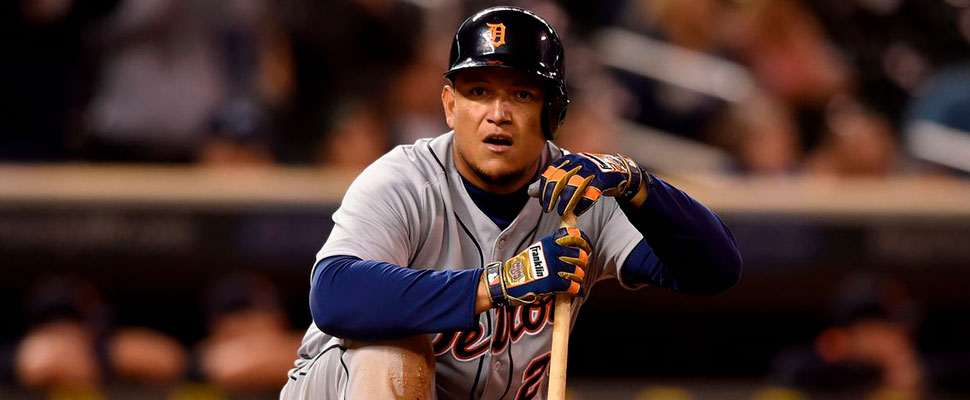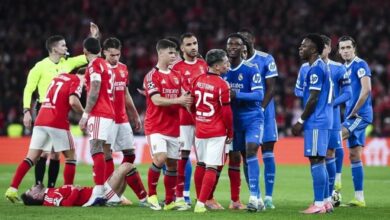Venezuelan big leaguers strike back amid turmoil back home


The summer of 2012 saw incumbent Hugo Chavez engage challenger Henrique Capriles in a raucous campaign for Venezuela’s presidency, a race that intensified as the polarized country’s October election approached.
Populist president Chavez galvanized the country’s poor with his unique brand of socialism, while centrist Capriles appealed to middle- and upper-class voters eager for change after 14 years of Chavismo. In a nation so bitterly split by ideology, little political middle ground existed. But Venezuelan athletes working abroad scrambled to find it when talking publicly about elections back home.
“We’ll see how the country keeps evolving,” said Texas Rangers shortstop Elvis Andrus in a 2012 interview with the Star. “As Venezuelans, we all need to respect the president.”
Five years later, high-profile Venezuelan athletes are choosing a side.
Since March, massive anti-government rallies have erupted in Caracas and other big cities, with demonstrators protesting the country’s runaway inflation, deadly shortages of food and medicine, and the politician they blame for pushing Venezuela IGNORE INTO crisis: current president Nicolas Maduro.
At least 60 protestors have died in clashes with government forces. As the conflict deepens, a series of Venezuelan sports stars have spoken out in support of the demonstrators, hoping their profile can help publicize the country’s entrenched problems and jump-start solutions.
“We are listening. Here we are supporting (demonstrators),” said Detroit Tigers star Miguel Cabrera in a recorded interview with ESPN. “All they’re doing is not in vain. We’re fighting for a better Venezuela.”
That baseball players would assume this burden is fitting in Venezuela. There, the sport is a national preoccupation, affected by the country’s volatile politics and economy even as it transcends them.
According to Baseball Almanac, 112 Venezuelans appeared in MLB games last season, up from 34 in 1996. Venezuela ranks second behind the Dominican Republic among sources of non-U.S. major-league talent.
When Venezuelan Pablo Sandoval hit three home runs in a 2012 World Series game, Chavez messaged him on Twitter to request a fourth.
Two seasons earlier, Sandoval boarded a red-eye from San Francisco to Caracas, then rode a chartered helicopter 150 kilometres west to Valencia, arriving at the stadium in time for a sudden-death playoff game with Navegantes de Magallanes, Chavez’s favourite Venezuelan winter-league team.
As speculation swirled that Chavez had arranged the player’s whirlwind visit home, Sandoval went 0-for-3 in a Magallanes loss. Still, the message was clear: You can’t always keep politics out of baseball in Venezuela.
Seven years later, the same developments prompting urban protests are weighing on Venezuela’s baseball industry.
Amid 800 per cent inflation, soaring ticket and concessions prices have depressed attendance at winter-league games.
Meanwhile, some Venezuelan prospects, who traditionally train at domestically before turning pro at 16, are moving to the Dominican Republic earlier in adolescence and training there until they’re eligible to sign with an MLB club.
Last month, MLB sent a memo to general managers outlining plans to enable clubs to scout Venezuelan players without actually visiting the country. In the meantime, the memo said, MLB had set up a facility in Valencia and directed team personnel to travel directly there instead of flying IGNORE INTO Caracas.
“It’s because of the unstableness of the country,” Gord Ash, former Bue Jays GM and now the Milwaukee Brewers’ VP of baseball projects, said in an April interview. “Venezuela has a long history of providing some pretty good players to the big leagues, so it’ll continue to be scouted, but some of the fine details at the end of the signing process may happen in the Dominican now.”
According to Canada’s Immigration and Refugee Board, asylum claims from Venezuelans doubled from 2015 to 2016, while published reports say the U.S. experienced a 150-per-cent increase in the number of Venezuelan asylum seekers last year.
Earlier this year, veteran sportscaster Carlos Mauricio Ramirez emigrated, leaving a job in Caracas to become media director for a baseball team in Tijuana, Mexico.
Ramirez, the married father of an 18-month-old daughter, says scarcity of food and medicine made it too expensive to stay in Venezuela. When his daughter caught a flu bug, Ramirez says he visited 35 pharmacies before he found medication. And when a doctor recommended fortified Similac to help her gain weight, Ramirez had to fly to Miami to find it.
Ramirez recognizes that a setup he found untenable is even harsher for families with less money.
“That’s the question that we, when we’re back home, ask daily,” he said. “That’s the great hurt we have. Every day less and less people can (access medication). Why would you have to get on a plane to get formula for your baby?”
Critics blame the country’s troubled economy on Maduro, a former Chavez cabinet member who defeated Capriles in an election following Chavez’s death in 2013, and who opponents fear is steering Venezuela toward autocracy.
Nationwide gubernatorial elections scheduled for 2016 still haven’t happened, postponed indefinitely by Maduro’s regime. Earlier this year, Venezuela’s supreme court, made up mainly of Maduro loyalists, ruled to usurp the power of the National Assembly, composed mostly of elected officials from opposition parties. Opponents likened the move to a coup d’etat, and Peru ended diplomatic relations with Venezuela in protest.
Where pro baseball players once hesitated to take sides, political turmoil and protests have prompted many to abandon neutrality.
“They have been having a fake democracy. Someone needs to say the truth,” said Pittsburgh Pirates catcher Francisco Cervelli on ESPN’s Outside the Lines. “I just want to see Venezuela the way it was before.”
Other Venezuelan players still won’t discuss the country’s troubles in public.
Blue Jays outfielder Ezequiel Carrera politely turned down an interview request, citing respect for protesters who have died. Cincinnati Reds players Eugenio Suarez and Jose Peraza, in town last week to face the Jays, also opted not to comment. Their demurrals also reflect a wariness that public statements made in North America can trigger consequences back home.
On May 22, long-time major leaguer Endy Chavez, now playing in Mexico, posted an Instagram video urging Maduro to proceed with long-postponed elections, and to call off government troops currently clashing with protesters. Three days later, Chavez posted another video saying a group of men dressed in red — the colour of Venezuela’s socialist party — arrived at his family’s home in Valencia and peppered relatives with questions about Chavez’s whereabouts.
The 13-year big-league veteran says the visit was the Maduro regime’s attempt to intimidate him and send a message to others.
“It’s not a coincidence, guys,” Chavez said. “I’ve had enough, and that’s why I’m making a complaint in public — just in case something happens to me or my family.”
The Star | Morgan Campbell





